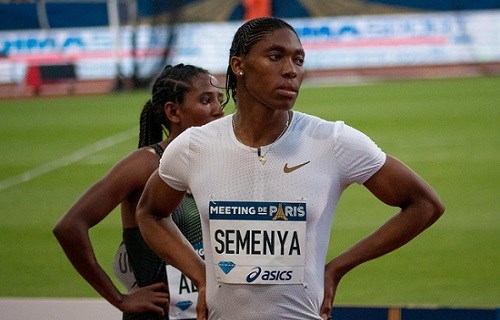CAS dismisses Semenya appeal

Caster Semenya has lost the landmark case against IAAF. Photo. Yann Caradec/Flickr
02.05.2019
By Play the GameThe year-long dispute between South African runner Caster Semenya and the International Association of Athletics Federations (IAAF) reached an important point yesterday, when CAS announced that they had voted in favour of the IAFF in a 2-1 vote.
Semenya had challenged IAFF regulations targeted at hyperandrogenous athletes, arguing that they are discriminative against her and other female athletes with what is sometimes called “differences of sex development” (or “DSD”). According to the proposed IAAF regulations, female runners with high levels of testosterone who compete between 400m and a mile have to medically lower their testosterone level if they want to compete against other women to secure a level playing field.
After five days of hearings that ended on 22 February 2019, CAS judges yesterday came to the decision that they dismissed Semenya’s appeal against the IAFF with two of the three judges in IAAF’s favour.
While the judges found that the IAAF rules regarding DSD are “discriminatory”, the judges, however, also found that “such discrimination is a necessary, reasonable and proportionate means of achieving the IAAF’s aim of preserving the integrity of female athletics in the Restricted Events”, says the press release from CAS.
"The CAS did not validate the IAAF rules, it simply rejected Semenya's motions," clarified CAS’ general secretary Mathieu Reeb. "It is up to the IAAF now to work on its regulations to adapt it to the reserves set by the CAS."
An executive summary of the decision has been released but the full decision, said to be 165 pages, is yet to be published.
The regulations, that have not yet been implemented, have been targeted for violating human rights, and for being discriminative and based on a low level on scientific integrity.
In response to the decision, Liesl Gerntholtz, deputy executive director for program at Human Rights Watch reiterated the organisation’s stance that the IAAF regulation is discriminatory.
“Women with intersex variations have the same right to dignity and control over their bodies as other women, and it’s deeply disappointing to see CAS uphold regulations that run afoul of international human rights standards,” Gerntholtz said “In scrutinizing and excluding women competitors based on their natural hormone levels, the IAAF regulations stigmatize, stereotype, and discriminate against all women.”
Earlier this year, the United Nations Human Rights Council also expressed concerns with the IAAF regulations in a resolution stating that the rules are incompatible with international human rights norms.
In a statement, Athletics South Africa said that the federations was “deeply disappointed and profoundly shocked that the CAS awardis in favour of upholding the new IAAF regulations for female athletes”.
"Sometimes, it is better to react with no reaction," tweeted Semenya after the decision went public.





